The act of optimizing a website to enhance its visibility and ranking on search engine results pages is known as Search Engine Optimization (SEO). SEO is important for any website owner or digital marketer as it helps to drive more organic traffic to a website, increase brand awareness, and generate more leads and revenue.
Why SEO is important for your website?
The majority of online experiences begin with a search engine, and over 90% of search engine users click on one of the top 3 results on a search engine results page (SERP). This means that if your website is not ranking high on SERPs, it is likely missing out on potential traffic and revenue.
SEO is also important for building credibility and trust with your audience. Websites that appear at the top of the search results are often perceived as more trustworthy and authoritative. By optimizing your website for search engines, you can establish your website as a reputable and reliable source of information.
The advantages of optimizing your website for search engines are
1. Increased organic traffic
SEO helps to improve the visibility and ranking of your website on search engine results pages, resulting in more organic traffic to your website.
2. Better user experience
By optimizing your website for search engines, you are also improving the overall user experience of your website, making it easier for users to find what they are looking for.
3. Brand awareness
Higher search engine rankings help to increase brand awareness and establish your website as a reputable and reliable source of information.
4. Higher conversion rates
Websites that are optimized for search engines often have higher conversion rates, as users are more likely to trust and engage with a website that appears at the top of the search results.
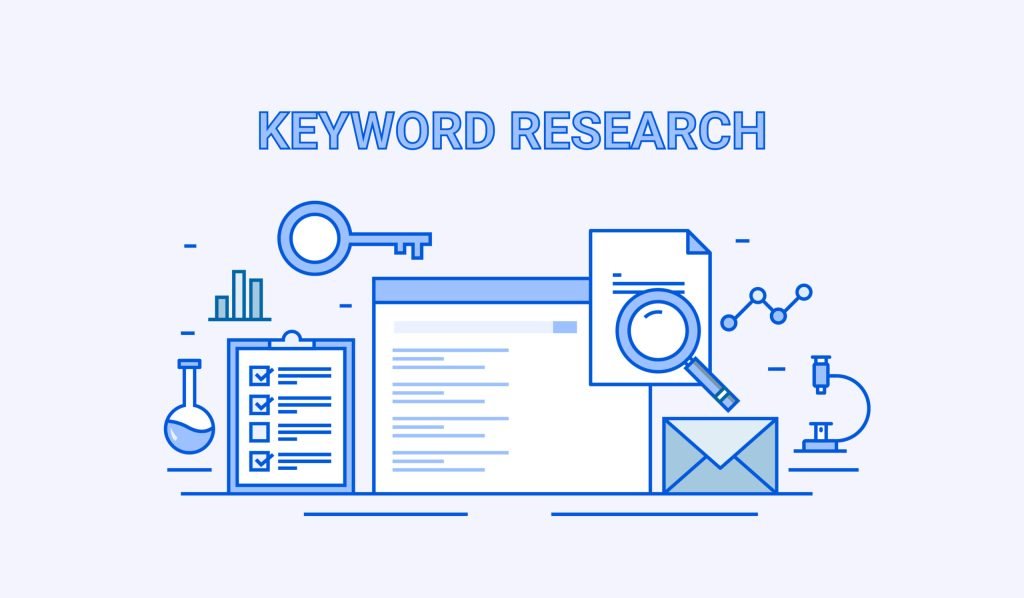
1. What are keywords in SEO?
Keywords are the foundation of any SEO strategy. They are the search terms that users type into search engines when looking for information, products, or services. By optimizing your website with relevant keywords, you can improve your website’s visibility and ranking on search engine results pages.
How to choose the right keywords for your website?
To select appropriate keywords for your website, you must conduct meticulous research and analysis. The following suggestions can assist you in selecting suitable keywords for your website.
1. Identify your target audience
Understanding your target audience is crucial in choosing the right keywords for your website. Consider their search intent, demographics, and the keywords they are likely to use when searching for your products or services.
2. Conduct keyword research
Utilize keyword research tools to recognize pertinent keywords for your website. Seek out keywords that possess high search volume, low competition, and strong relevance to your business.
3. Analyze competitor keywords
Analyze the keywords that your competitors are using to optimize their websites. This can give you valuable insights into the keywords that are most effective in your industry.
4. Focus on long-tail keywords
Long-tail keywords are longer, more specific search terms that are often easier to rank for and have higher conversion rates. Focus on incorporating relevant long-tail keywords into your website’s content.
Tools for conducting keyword research
There are a variety of tools available to help you conduct keyword research for your website. Some popular tools include.
· Google Keyword Planner
This free tool from Google allows you to research keywords and see their search volume, competition, and other metrics.
· SEMrush
SEMrush is a comprehensive SEO tool that includes keyword research, competitor analysis, and other features to help you optimize your website for search engines.
· Ahrefs
Ahrefs is another popular SEO tool that includes keyword research, competitor analysis, and backlink analysis features.
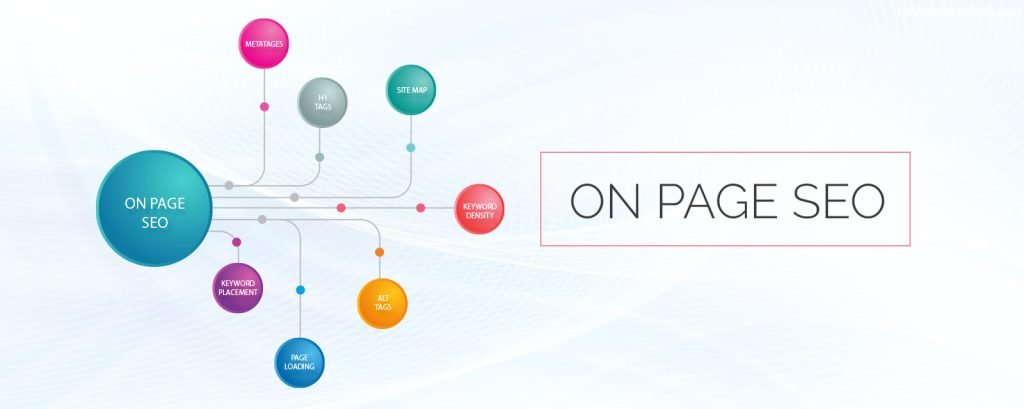
2. The importance of on-page optimization
On-page optimization refers to the process of optimizing individual web pages in order to improve their visibility and ranking on search engine results pages. On-page optimization is important because it helps search engines understand the content of your website, which can improve your website’s relevance and ranking for specific search terms.
Best practices for optimizing title tags, meta descriptions, and header tags
Title tags, meta descriptions, and header tags are important on-page elements that can impact your website’s ranking on search engine results pages. Below are some recommended approaches to improve the optimization of these elements
1. Title tags
The title tag is the text that appears in the search engine results as the clickable headline for a given web page. Your main keyword should be included in a brief and descriptive manner.
2. Meta descriptions
The meta description is a brief summary of the content on a web page that appears in the search engine results. It should be engaging, informative, and contain your primary keyword.
3. Header tags
The web page content is structured using header tags (H1, H2, H3, etc.). They help search engines understand the hierarchy of the content and the importance of specific sections. Use header tags to organize your content and include your primary keyword in at least one header tag.
Techniques for optimizing content and images
In addition to optimizing title tags, meta descriptions, and header tags, there are several techniques you can use to optimize the content and images on your web pages. Here are some best practices.
-
Content optimization
Incorporate pertinent keywords throughout your content while avoiding the overuse of keywords known as keyword stuffing. Write high-quality, engaging content that provides value to your audience and includes internal and external links to authoritative sources.
-
Image optimization
Optimize images by compressing them to reduce file size and including descriptive alt tags that include your primary keyword. By doing so, search engines can comprehend the contents of your images.
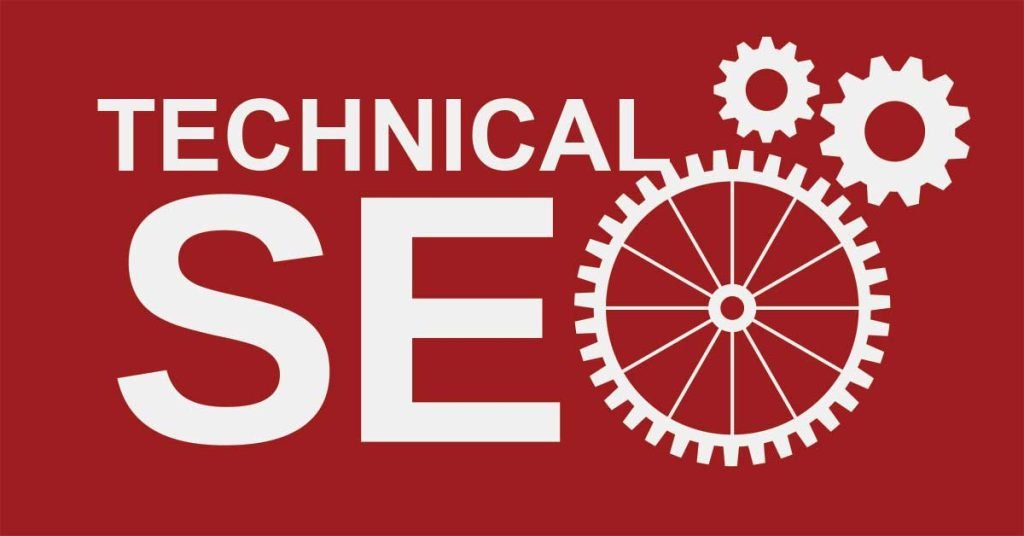
3. What is Technical SEO?
The practice of enhancing the technical features of your website to enhance its ranking and visibility on search engine results pages is called Technical SEO. Technical SEO focuses on improving the website’s structure, navigation, speed, and mobile-friendliness.
How to optimize your website’s structure and navigation
Optimizing your website’s structure and navigation is essential for ensuring that search engines can easily crawl and index your website’s pages. Here are some techniques for optimizing your website’s structure and navigation.
1. Use a clear hierarchy
Organize your website’s pages into a clear hierarchy to help search engines understand the structure and importance of each page.
2. Use internal linking
Use internal links to connect related pages on your website and help search engines discover and crawl your website’s pages.
3. Create a sitemap
A sitemap is a document that outlines all the pages present on your website. Submitting a sitemap to search engines can help them discover and index your website’s pages more efficiently.
Techniques for optimizing website speed and mobile-friendliness
Website speed and mobile-friendliness are two important factors that can impact your website’s ranking on search engine results pages. Here are some techniques for optimizing website speed and mobile friendliness.
1. Optimize images
Compress images to reduce their file size and improve website loading speed.
2. Use caching
Caching can improve website loading speed by storing frequently accessed data on a user’s device or browser.
3. Use a responsive design
A responsive design ensures that your website displays properly on all devices, including desktops, laptops, tablets, and smartphones.
4. Optimize for page speed
Identify and resolve any issues that could be causing your website to load slowly by utilizing tools such as Google PageSpeed Insights.

4. What is off-page optimization and why is it important?
Off-page optimization refers to the techniques used to improve the visibility and ranking of your website on search engine results pages through external means. This includes building high-quality backlinks, social media engagement, and other external factors that influence your website’s reputation and authority.
Off-page optimization is important because it signals to search engines that other websites and users find your content valuable and trustworthy, which can positively impact your website’s ranking on search engine results pages.
Strategies for building high-quality backlinks to your website
Backlinks are a critical aspect of off-page optimization. Below are some techniques for creating high-quality backlinks for your website.
1. Guest posting
Writing articles for other websites and including links back to your website in the article or author bio.
2. Broken link building
A technique for promoting your website’s content involves discovering broken links on external websites and suggesting to replace them with links to your site.
3. Directory listings
List your website on reputable directories such as Yelp, Google My Business, and Yellowpages.
4. Influencer outreach
Engaging with influencers within your industry and requesting them to promote your content to their followers can be an effective approach.
How social media can impact your website’s SEO?
Social media can indirectly impact your website’s SEO by driving traffic to your website and improving your website’s reputation and authority. Here are some ways social media can impact your website’s SEO.
1. Increased traffic
Social media can drive traffic to your website through shares, likes, and other engagement with your content.
2. Improved reputation and authority
Positive social media engagement signals to search engines that your website is reputable and authoritative, which can positively impact your website’s ranking on search engine results pages.
3. Social media profiles in search results
Social media profiles may also appear on search engine results pages, which can increase your online visibility and reputation.
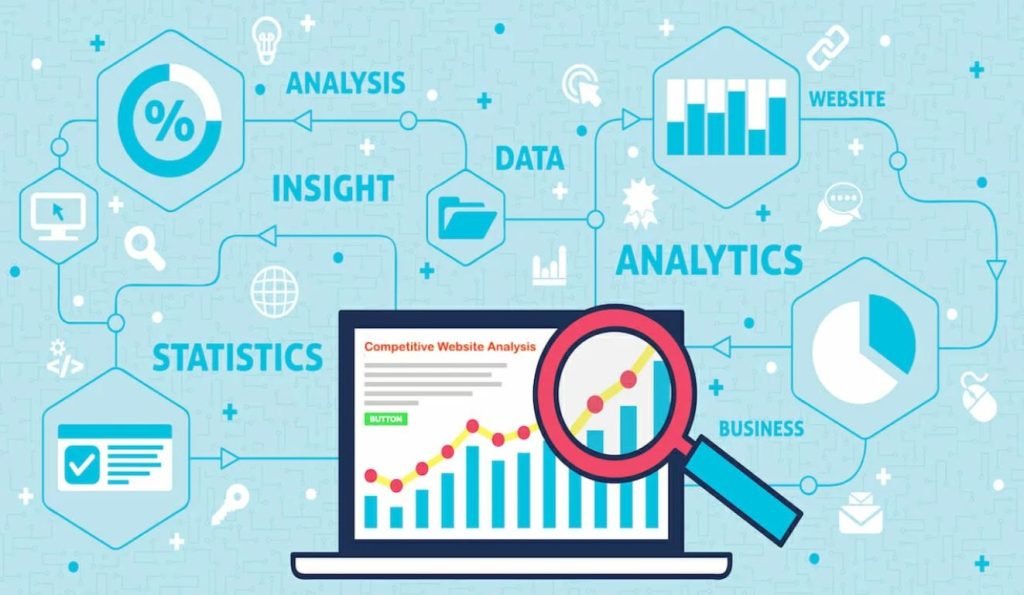
5. The importance of tracking your website’s SEO performance
Tracking your website’s SEO performance is essential to understand how your website is performing in search engine results pages and identify areas for improvement. By monitoring your website’s SEO performance, you can identify which keywords are driving traffic to your website, which pages are performing well, and which pages are not performing as expected.
Are there any Tools for monitoring your website’s ranking and traffic?
There are several tools available to monitor your website’s ranking and traffic, such as Google Analytics, Google Search Console, SEMrush, and Ahrefs. These tools provide valuable insights into your website’s traffic, ranking, and user behavior, such as bounce rates, click-through rates, and time on the page.
How to use analytics to make data-driven decisions?
Using analytics to make data-driven decisions is crucial to improving your website’s SEO performance. Here are some ways to use analytics to make data-driven decisions.
1. Identify top-performing pages
Analyze your website’s traffic data to identify which pages are performing well and which pages are not. This can help you focus on optimizing the pages that need improvement.
2. Track keyword performance
Use analytics tools to monitor which keywords are driving traffic to your website and how your website is ranking for those keywords. This can help you identify which keywords to focus on for further optimization.
3. Monitor user behavior
Analyze user behavior data, such as bounce rates and time on the page, to understand how users are interacting with your website. By doing this, you can pinpoint areas that need improvement and optimize your website accordingly.
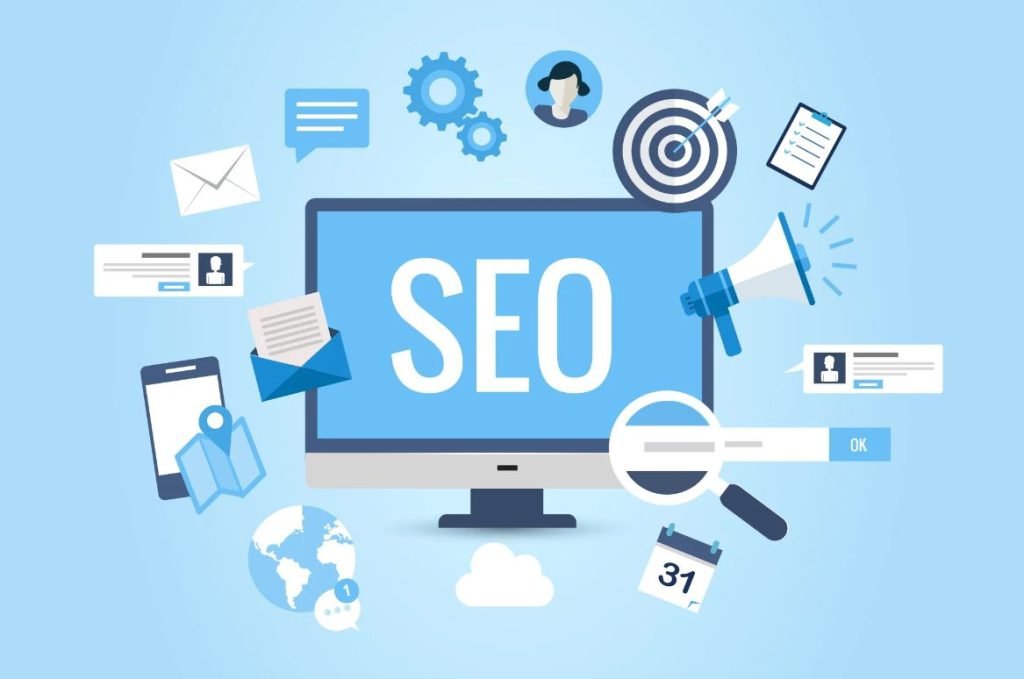
Recap of the steps to optimize your website for SEO
- Understand why SEO is important for your website犀利士5mg
li> - Conduct keyword research to identify the right keywords for your website
- Optimize your website’s on-page elements, such as title tags, meta descriptions, and header tags
- Optimize your website’s technical elements, such as structure, navigation, speed, and mobile-friendliness
- Build high-quality backlinks to your website and leverage social media for SEO
- Measure and monitor your website’s SEO performance using analytics tools
- Use the insights from analytics to make data-driven decisions
- Create high-quality, engaging, and relevant content for your audience
- Optimize your website for local SEO if you have a physical location or serve a specific geographic area
- Continuously test and improve your website’s SEO performance.
Final thoughts on the importance of SEO for your website’s success
Continuous effort and optimization are necessary for SEO, as it is a constantly evolving process. By implementing the best practices outlined in this checklist, you can improve your website’s visibility, attract more organic traffic, and ultimately, drive more conversions and revenue. In today’s digital age, SEO is an essential component of any successful website, and neglecting it can have a significant impact on your business’s bottom line. So, invest the time and resources needed to optimize your website for search engines and reap the benefits of a well-optimized website.
Is SEO Specialist a Good Career?
If you’re interested in pursuing a career in digital marketing, becoming an SEO specialist can be a smart move. With more businesses recognizing the importance of SEO for their online success, the demand for skilled SEO professionals is on the rise.
To become an SEO specialist, you can start by taking a Search Engine Optimization Course to gain a solid understanding of SEO fundamentals, such as keyword research, on-page optimization, link building, and analytics. Many universities and online learning platforms offer SEO courses and certifications that can help you gain the skills and knowledge needed to excel in this field.
Where can I work as an SEO Specialist?
As an SEO specialist, you can work for a variety of organizations, such as digital marketing agencies, e-commerce companies, and tech startups. You’ll be responsible for analyzing website traffic and search engine rankings, identifying opportunities for improvement, and implementing SEO strategies to increase organic traffic and revenue.
How much does SEO Expert Earn?
SEO specialists can earn a competitive salary, with the average annual salary for an SEO specialist in the United States ranging from $45,000 to $85,000, according to Glassdoor. Moreover, SEO specialists can advance their careers by becoming SEO managers or directors, overseeing the SEO strategies of a company or multiple clients.
In summary, becoming an SEO specialist can be a rewarding and lucrative career path, especially if you have a passion for digital marketing and a desire to help businesses succeed online. With the right skills and experience, you can build a successful career in this dynamic and growing field.









